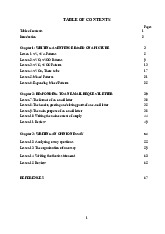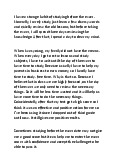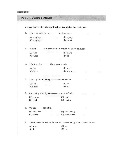

Preview text:
HOMEWORK
Name: Dương Thị Vi_4636
TOPIC 2: What do you think about Rebecca Sharp in Vanity Fair?
What major stylistic devices are applied in the work?
Vanity Fair, William Makepeace Thackeray's novel about early 19th-century
English society, was published month by month from 1847 to 1848 and in book
form in 1848. Thackeray's earlier works had been published not yet. mark or under
pen list; Vanity Fair was the first work published under her own name. The novel
takes its title from what is seen as central to human alienation in John Bunyan's
17th-century linguistic tale of Pilgrimage Progress. Books are a big picture of
human processing and fatigue; subtitled Fiction without a Hero, Vanity Fair
represents the human condition metaphorically.
This character is to the bad general of the life: Please be greedy. It is the feudal
society of knowledge that reproduces the stains of human time.
As a young "child of a lowly family", her father is a debauched painter, her mother
is a French dancer. Lack of education from a young age, early damage in the
environment still has errors, but the repaired Rebecca has beauty, intelligence and
talent. That's why she brought her nuances and emotions in her business. From
being helpless and cheap, leaving the school immediately into the path of progress.
Arriving at Amelia's house, she launched an attack on your rich friend, Joseph.
Greed for fame has lost the character of a seventeen-year-old girl. The job failed,
Rebecca came to tutor Pitt Crawley's family, a noble family in the countryside and
quickly became the daughter-in-law of this family. For Rebecca, getting married is
not about love, not about education, but about building a ladder for her to climb to
the top of the elite. The very trick to step into the upper class, the demands of fame
and fortune that made Rebecca a queen was also extinguished, when the sound was
exposed, she was thrown from the rooftop. save a ruthless way. She returns to the
optimal life, abandoned by the elite, falsely, she sinks more and more into the quagmire.
It can be said that Rebecca is a typical example of the desire to step into the elite in
the work, through Rebecca's activities, it also exposes the false and ignorant face of
the aristocracy, and represents the people of the upper class. transformed, despite
tricks to rise to the aristocracy. Beside Rebecca, a character from a poor
background, Pitt Crawley is a ruthless village aristocracy, whose health deprives
the people to where most of the estates are manufactured. alcohol, women, and
lawsuits. He was an ignorant rural aristocracy, and so had enough fame and power.



